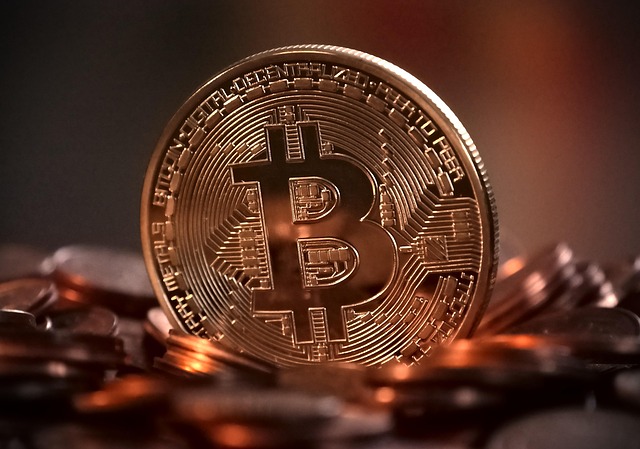Bitcoin’s next catalyst: End of $36T US debt ceiling suspension
Bitcoin’s next significant price catalyst may arrive this Friday as the United States debt suspension period comes to an end, potentially injecting fresh liquidity into markets and driving a price rebound.The US Treasury hit its $36 trillion debt ceiling a day after President-elect Donald Trump’s inauguration on Jan. 20. Treasury Secretary Janet Yellen announced a “debt issuance suspension period” beginning Jan. 21, which is set to last until March 14, according to a letter published on Jan. 17.Bitcoin (BTC) has dropped 22% during the two-month debt suspension plan, from over $106,000 on Jan. 21 to $82,535 at the time of writing on March 12, TradingView data shows.BTC/USD, 1-day chart since Debt suspension plan. Source: Cointelegraph/TradingView The resumption of government spending will bring a liquidity boost that may catalyze Bitcoin’s next rally, according to Ryan Lee, chief analyst at Bitget Research.“With in-hand cash, the demand for financial assets such as stocks and crypto can increase, and there may be a relief from ongoing volatility,” the analyst told Cointelegraph. “In such periods, we can expect a boost in the overall momentum, although many other factors are important to note.”Beyond global tariff uncertainty, “concerns such as inflation, interest rates and geopolitical issues remain unresolved,” Lee added.Considering that the debt suspension ends just two weeks after the White House Crypto Summit, a portion of the new liquidity may flow into cryptocurrencies, according to Aleksei Ponomarev, co-founder and CEO of crypto index investing firm J’JO.“Surges in liquidity have typically benefited Bitcoin and risk assets, and the end of the US debt suspension will be no different,” he told Cointelegraph, adding:“While the liquidity surge will undoubtedly drive market price movement, it is limited to short-term impact. The long-term trajectory of Bitcoin is, and remains, tied to institutional investments, ETF growth and regulatory clarity and implementation.”GMI Total Liquidity Index, Bitcoin (RHS). Source: Raoul PalHowever, Bitcoin’s right-hand side (RHS), which marks the lowest bid price someone is willing to sell the currency for, may still face a potential correction to near $70,000 until the end of the debt suspension period on Friday, based on its correlation with the global liquidity index.Still, the growing money supply could push Bitcoin price above $132,000 before the end of 2025, according to estimates from Jamie Coutts, chief crypto analyst at Real Vision.BTC projection to $132,000 on M2 money supply growth. Source: Jamie CouttsRelated: Bitcoin may benefit from US stablecoin dominance pushBitcoin price still limited by global trade war concernsWhile more global liquidity is an optimistic sign for Bitcoin, the world’s first cryptocurrency remains limited by global trade tariff concerns, according to James Wo, the founder and CEO of venture capital firm DFG:“While some may argue that retaliatory measures from tariff-imposed countries were already priced in, tariffs have a delayed economic impact beyond their initial announcement.”“Higher import costs and reduced corporate margins are likely to push inflation higher, forcing central banks to keep interest rates elevated for longer under a restrictive monetary policy,” he added.This may also tighten liquidity conditions, making risk assets such as Bitcoin “less attractive in the short to medium term,” Wo said.Related: Bitcoin reserve backlash signals unrealistic industry expectationsThe European Union introduced retaliatory tariffs on March 12, threatening a Bitcoin correction below $75,000 in the short term. This may occur temporarily due to Europe accounting for over $1.5 trillion of annual US exports.Despite the short-term correction concerns, most analysts remained optimistic about Bitcoin’s price trajectory for late 2025, with price predictions ranging from $160,000 to above $180,000.Magazine: SCB tips $500K BTC, SEC delays Ether ETF options, and more: Hodler’s Digest, Feb. 23 – March 1
Securitize to bring BUIDL tokenized fund to DeFi with RedStone price feeds
Real-world asset (RWA) tokenization company Securitize has selected RedStone as the primary oracle provider for its tokenized products, which include BlackRock’s USD Institutional Digital Liquidity Fund (BUIDL) and the Apollo Diversified Credit Securitize Fund (ACRED).According to a March 12 announcement, RedStone will deliver price feeds for current and future tokenized products offered by Securitize. As a DeFi-focused oracle provider, RedStone will purportedly expand the use cases of BUIDL and ACRED into money market exchanges and collateralized DeFi platforms, Securitize said.RedStone provides crosschain data feeds for decentralized finance protocols on Ethereum, Avalanche and Polygon. According to DefiLlama data, it has amassed $4.3 billion in total value secured across all clients. RedStone’s total value secured as of March 11. Source: DefiLlamaIn July, RedStone raised $15 million in a Series A funding round led by Arrington Capital, with additional participation from Spartan, IOSG Ventures, HTX Ventures and others. Securitize selected RedStone as its oracle provider because of its “modular design,” which means it “can scale to thousands of chains and support new implementations in a matter of days,” RedStone chief operating officer Marcin Kazmierczak told Cointelegraph in a written statement. By using the RedStone oracle price feeds, Securitize’s funds “can now be utilized across DeFi protocols such as Morpho, Compound or Spark,” he said. Related: BlackRock CEO wants SEC to ‘rapidly approve’ tokenization of bonds, stocks: What it means for cryptoInstitutional interest in tokenized assets on the riseSecuritize co-founder and CEO Carlos Domingo told Cointelegraph that demand for tokenized funds is growing across a “diverse range of investors and users” spanning traditional finance and crypto-native firms.“Institutional investors, private equity firms, and credit managers are turning to tokenization to enhance efficiency, reduce operational friction, and improve liquidity for private markets,” he said.On the crypto-native side, companies “see tokenized RWAs as a secure and efficient way to manage treasury reserves while benefiting from stable yields,” said Domingo.So far, the tokenization of private credit and US Treasury bonds have seen the largest uptake, according to industry data. The total market for onchain RWAs is approaching $18 billion, having grown by 16.8% over the past 30 days, according to RWA.xyz. At $12.1 billion, private credit accounts for 68% of the tokenized RWA market. Source: RWA.xyzSeparate data from Security Token Market showed that more than $50 billion worth of assets were tokenized by the end of 2024, with the majority coming from real estate. The tokenization market has attracted significant players in recent years, with the likes of Ondo Finance, Tradable and Brickken entering the fray. Related: Trump-era policies may fuel tokenized real-world assets surge
XRP ETF: Here are the funds awaiting SEC approval so far
American asset manager Franklin Templeton has entered the growing XRP exchange-traded fund (ETF) race, becoming the latest firm to file for a spot XRP ETF in the United States.Franklin Templeton’s XRP (XRP) ETF is designed to track the performance of the XRP price, with XRP holdings stored at Coinbase Custody Trust, according to an official filing with the US Securities and Exchange Commission on March 11.On the same day, the SEC postponed decisions on multiple crypto ETF filings, including Grayscale’s proposal to convert its XRP Trust into an ETF.Despite the growing XRP ETF filing frenzy, BlackRock — the issuer of the largest spot Bitcoin (BTC) ETF — has yet to submit a filing for an XRP-based product.Who has filed for an XRP ETF in the US?As of March 12, nine companies filed for XRP ETF products in the US, including major issuers like Bitwise, ProShares, 21Shares and others.Bitwise, one of the world’s largest crypto funds managers, was the first firm to submit a Form S-1 filing for an XRP ETF on Oct. 2, 2024.Canary Capital subsequently followed Bitwise’s lead, filing a Form S-1 for a similar product on Oct. 8, 2024.Switzerland-based crypto investment firm 21Shares and the US ETF provider WisdomTree also filed for XRP ETFs in late 2024, with filings coming in November and December, respectively.Asset manager ProShares joined the XRP ETF race in 2025 by filing for several XRP ETF products with the SEC on Jan. 17, including the ProShares XRP ETF and three additional XRP investment products.Related: VanEck registers Avalanche ETF in US as AVAX drops 55% year-to-dateAnother XRP ETF filing subsequently came from the European crypto investment firm CoinShares in January, with Grayscale proposing to convert its XRP Trust into an XRP ETF trading on the New York Stock Exchange on Jan. 30.Volatility Shares, a Florida-based financial services firm founded in 2019, also filed three XRP ETF products on March 7, including the Volatility Shares XRP ETF, the Volatility Shares 2x XRP ETF and the Volatility Shares -1x XRP ETF.Other filings featuring XRP ETFsBeyond dedicated XRP ETF filings, at least two asset managers have included XRP in broader crypto ETF products.On Jan. 21, asset manager REX-Osprey filed for an “ETF Opportunities Trust,” which includes seven ETFs tracking assets including major coins such as XRP and Bitcoin, as well as memecoins like Bonk (BONK) and Official Trump (TRUMP).Similarly, Tuttle Capital Management submitted an ETF opportunities trust filing, including 10 daily target ETFs, covering assets such as XRP and Melania (MELANIA).ETF compositions in the ETF opportunities trusts by Tuttle Capital Management and REX-Osprey. Source: SECApart from BlackRock, a number of crypto ETF providers have not yet filed for an XRP ETF, including firms such as Invesco, VanEck, ARK Invest, Fidelity Investments and Galaxy Digital.Magazine: SEC’s U-turn on crypto leaves key questions unanswered
Gemini crypto exchange adds USD payment rails for European institutions
Gemini crypto exchange, founded by Cameron and Tyler Winklevoss, is expanding its trading capabilities for institutional clients in Europe by introducing US dollar payment supportGemini has partnered with Liechtenstein-based Bank Frick to enable US dollar payment rails for institutional customers in the United Kingdom and Switzerland, the firm said in an announcement shared with Cointelegraph on March 12.“We plan to expand our rollout of USD rail support to our European Union institutional customers in the next few weeks,” said Gemini’s head of Europe, Mark Jennings.The new functionality will also be available to Gemini’s institutional users in Gibraltar, Jersey, Guernsey and the Isle of Man.Direct crypto trades with US dollarGemini’s new US dollar feature — also coming to some countries in the European Economic Area — will enable institutions to deposit and withdraw US dollars to and from their Gemini accounts with no fees.The functionality will also enable institutions to access US dollar-to-crypto trading pairs and directly trade with US dollars on Gemini, rather than having to convert to the British pound or euros, removing friction, Jennings told Cointelegraph, adding:“With interest in institutional crypto adoption exploding in recent years, US dollar rails will be key in giving a seamless and frictionless trading experience.”For deposits, Gemini will utilize Bank Frick’s instant transfer service called xPulse, which will provide a 24/7 fiat on-ramp for institutional customers who have a Bank Frick bank account, the firm noted.Gemini will provide the feature via its EMI-licensed entitiesAccording to Jennings, Gemini’s new functionality will be available directly on the platform through its own entities that have received Electronic Money Institution (EMI) licenses.“Unlike most CASPs [crypto asset service providers] that rely on partnerships for funding rails due to the lack of an EMI license, our regulatory-first approach allows us to provide seamless funding solutions directly through our own EMI-licensed entities,” the exec told Cointelegraph.It is unclear how widespread US dollar trading support is among other European crypto exchanges and service providers.Related: SEC closed investigation into Gemini with no action, says WinklevossMajor crypto exchange Coinbase introduced US dollar trading pairs for European customers in 2019 for Coinbase Pro and Prime customers. The exchange halted its Pro service in 2023.The news comes soon after Gemini reportedly submitted a confidential filing for an initial public offering (IPO) in the United States.Source: BloombergAccording to Bloomberg’s sources, Gemini’s IPO may be launched as soon as this year and would involve companies like Goldman Sachs and Citigroup.Gemini has been working to go public since at least 2021 and reportedly considered a merger with the now-bankrupt venture capital firm Digital Currency Group.Magazine: Bitcoin’s odds of June highs, SOL’s $485M outflows, and more: Hodler’s Digest, March 2 – 8
EU retaliatory tariffs threaten Bitcoin correction to $75K — Analysts
The European Union’s recent announcement of retaliatory tariffs has sparked concerns among crypto analysts about potential volatility in Bitcoin prices. The EU plans to impose counter-tariffs on $28 billion worth of US goods, in response to President Donald Trump’s decision to impose tariffs on steel and aluminum imports.
This move has raised fears of a renewed trade war and its impact on the global economy, which could also affect the cryptocurrency market. Some analysts predict that Bitcoin prices may drop below the critical support level of $75,000, while others believe it may rebound due to the high demand for stablecoins and real-world assets.
However, import tariffs are not the only factor influencing Bitcoin’s price. According to Ryan Lee, chief analyst at Bitget Research, wider economic conditions and factors such as institutional adoption and regulatory updates also play a role in the cryptocurrency’s resilience.
Despite the uncertainty caused by trade tariffs, some analysts see a temporary retracement in Bitcoin prices as part of a larger bull market cycle. They believe that the current correction may lead to a stronger rally in the future.
The EU’s retaliatory tariffs will take effect on April 13, while Trump’s increased tariffs on Canadian cars will come into effect on April 2. This ongoing trade tariff uncertainty may limit both traditional and cryptocurrency markets until a resolution is reached.
In the meantime, investors and traders are advised to closely monitor the situation and its impact on the markets. While some analysts believe that the recent tariff announcements may have a limited impact, others warn that the noise surrounding trade policies could continue until negotiations are finalized.
In conclusion, while the EU’s retaliatory tariffs may cause short-term volatility in Bitcoin prices, the cryptocurrency’s long-term prospects remain strong. With increasing institutional adoption and high utility, Bitcoin is proving to be a resilient asset in the face of global economic uncertainty.
Web3 gaming investors no longer throwing money at ‘Axie killers’
The Web3 gaming industry is facing tighter investment conditions as capital flows become more selective, with investors prioritizing sustainable projects over hype-driven fundraising.In February, Gunzilla Games Web3 director Theodore Agranat described blockchain gaming as a “game of musical chairs” in which the same capital cycles through different projects and “no new money” comes in. The executive also said users go from project to project to extract value. After that, they leave and search for the next project.In the same month, the much-anticipated Web3 game Illuvium announced a 40% layoff, demonstrating the need for teams to go “super lean” in today’s market. Sky Mavis co-founder and CEO Trung Nguyen announced a similar move in October 2024, cutting 21% of its staff to optimize its budget for upcoming projects. Despite these events, Web3 gaming professionals said that capital still exists, and explained some of the factors contributing to the industry-wide trend. Investors no longer blindly throw their money at projectsSky Mavis co-founder Jeffrey Zirlin told Cointelegraph that Web3 gaming is not uniquely struggling but rather experiencing the same capital constraints affecting the broader crypto industry.The executive said Web3 gaming is not facing a unique challenge as the landscape is “tight across the board.” Still, Zirlin pointed out exceptions. He cited Fableborne, a mobile Web3 game that was oversubscribed by 16,000% despite the market downturn, as demonstrating that “fresh capital was indeed flowing into Ronin,” the Sky Mavis blockchain network. He added: “It’s not that investment has dried up entirely. It’s just that investors are no longer blindly throwing money at projects like they did with so-called ‘Axie killers’ that failed to deliver.”“Axie killers” was a term used to describe gaming projects that claimed to be the next big Web3 game that would surpass Axie Infinity, Sky Mavis’ flagship Web3 game. Meanwhile, The Sandbox co-founder and chief operating officer Sebastien Borget told Cointelegraph that the “game of musical chairs” description suggests a degree of randomness. Borget said he disagrees with this. The executive said that while new capital is more limited and investors are more cautious, there is now less of the unpredictability previously fueled by hype cycles. “The success of blockchain games increasingly depends on the ability to meet traditional gaming metrics. These include delivering compelling content and gameplay, fostering sustainable user acquisition, establishing a strong in-app economy and building a loyal user base,” he added. Related: Axie Infinity teases new Web3 game as NFT outlook turns positiveProjects can’t just “slap NFTs” into a game and raise millionsJosh Gier, chief marketing officer of the gaming tournaments platform Coliseum, told Cointelegraph that the days of simply adding non-fungible tokens (NFTs) to a game and earning massive support from crypto investors are gone. “Yes, the speculative phase of blockchain gaming, where projects could raise millions just by slapping NFTs onto a game, has cooled off. But that doesn’t mean capital has disappeared,” Gier said. The executive said the capital is becoming more selective and flows toward projects with strong fundamentals and sustainable economies.“Investors are showing interest in games that integrate Web3 elements in a way that enhances the player experience rather than focusing solely on financial incentives,” Gier added. Vineet Budki, the CEO of venture firm Sigma Capital, said some core investors, like Animoca Brands, specifically focus on the blockchain gaming segment. He said that games take longer to build, unlike other niches, so gaming investments take longer to bear fruit. Still, the executive said, raising Web3 gaming capital has become more complicated. “Gone are the times when you would make a video on gameplay, have attractive tokenomics and raise capital,” Budki said in a statement sent to Cointelegraph. The executive said that teams building great games and having knowledge of the distribution process are the elements that can attract capital. Magazine: Off The Grid’s ‘biggest update yet,’ Rumble Kong League review: Web3 Gamer
Nigeria’s crypto future: Striking a balance between innovation and regulation
Opinion by: Mohammed Idris, Minister of Information of NigeriaNigeria has emerged as one of the most active and dynamic crypto markets in recent years. From bustling tech hubs in Lagos to grassroots communities in smaller cities, young Nigerians have turned to cryptocurrencies to address fundamental economic challenges, from hedging against inflation to accessing global markets in a way traditional finance often does not allow.As minister of information, I have seen firsthand how digital innovation has become crucial to the Nigerian story. Cryptocurrencies, blockchain technology and other digital assets are no longer on the fringes of our economy; they are fast becoming central to how our people transact, create and build.This rise in crypto adoption has not, however, come without challenges. Questions around regulation, consumer protection, security and misuse of digital assets have fueled debates in Nigeria and globally. I write to clarify Nigeria’s position: We are committed to fostering an inclusive digital asset ecosystem that is both innovative and responsible.Nigeria is a crypto hubAccording to several international reports, Nigeria consistently ranks among the top countries in terms of crypto adoption. Our population — over 200 million strong, with a median age under 20 — is naturally inclined toward new technologies. Crypto has become more than a speculative tool; it’s a lifeline for freelancers, small businesses and families receiving remittances.Yet despite the widespread use of cryptocurrencies, Nigeria has wrestled with how to regulate this sector effectively. Earlier approaches included restrictions on financial institutions from facilitating crypto transactions, which inadvertently pushed much of the activity underground, away from proper oversight.Nigeria moves toward robust regulationUnder the administration of President Bola Ahmed Tinubu, Nigeria is reassessing its approach. We are moving away from blanket restrictions toward thoughtful, balanced regulation that acknowledges both the risks and the transformative potential of crypto and blockchain technologies.Our objective is to create a regulatory framework that fosters innovation, ensures market integrity and protects Nigerian consumers. This involves active engagement with stakeholders from crypto startups and blockchain developers to international partners and regulatory bodies.Recent: Nigeria to tax cryptocurrency transactions for revenue boostNigeria’s stance is simple. We support innovation that benefits our people, but we will not allow misuse that harms them.We recognize the legitimate use cases for cryptocurrencies, including:Financial inclusion for the unbanked and underbanked.Cross-border payments and remittances that avoid high fees.Access to global markets for Nigerian entrepreneurs and freelancers.New digital economies, such as decentralized finance (DeFi) and non-fungible tokens (NFTs), offer opportunities for wealth creation.At the same time, we are determined to address concerns around fraud, money laundering, terrorism financing and other illicit activities. Effective regulation, rather than prohibition, is the path forward.Nigeria and blockchainNigeria sees blockchain technology as more than just crypto trading. Blockchain can be a powerful governance, transparency and service delivery tool.Already, conversations are underway on how blockchain can improve public systems, such as:Land registries to reduce fraud and strengthen property rights.Identity management systems to enhance financial inclusion.Supply chain monitoring to improve food security and public procurement.A collaborative approach Nigeria is not navigating this journey alone. As we develop new policies and frameworks, we look to global best practices and seek collaboration with international platforms and regulators.We invite crypto companies, investors, innovators and advocates to engage with us. We aim to create a transparent and predictable environment where businesses can thrive while ensuring Nigerian citizens are protected from undue risks.Nigeria’s approach to crypto is evolving, and with good reason. The potential for digital assets and blockchain to contribute to economic growth, job creation and financial empowerment is too significant to ignore.To realize these benefits, we must build trust in the system through effective regulation, education and international cooperation.To the global crypto community, I say this: Nigeria is open to innovation, but we are equally committed to ensuring that such innovation operates within a secure, transparent and inclusive framework.We look forward to working together — for the benefit of Nigerians and the global advancement of responsible crypto adoption.Opinion by: Mohammed Idris, Minister of Information of Nigeria.This article is for general information purposes and is not intended to be and should not be taken as legal or investment advice. The views, thoughts, and opinions expressed here are the author’s alone and do not necessarily reflect or represent the views and opinions of Cointelegraph.
America must back pro-stablecoin laws, reject CBDCs — US Rep. Emmer
In a recent House Financial Services Committee hearing, US Representative Tom Emmer made a strong case for prioritizing pro-stablecoin legislation while also warning against the potential dangers of central bank digital currencies (CBDCs). Emmer, who reintroduced the CBDC Anti-Surveillance State Act in the House of Representatives on March 6, emphasized the need for Congress to pass this legislation in order to prevent future administrations from launching a US CBDC without explicit approval.
During the hearing, Emmer argued that CBDC technology is inherently un-American and could potentially upend the American way of life by allowing unelected bureaucrats to issue a digital currency. This sentiment is shared by many in the crypto community, including Paxos CEO Charles Cascarilla who also spoke at the hearing. Cascarilla urged lawmakers to create consistent regulations for stablecoins across jurisdictions to avoid regulatory arbitrage and ensure a level playing field for all market participants.
Emmer also raised concerns about the privacy risks associated with CBDCs, stating that stablecoins could bring traditional finance onto the blockchain at a global scale while still preserving privacy. He emphasized the need for pro-stablecoin legislation to be prioritized alongside anti-CBDC legislation in order to protect the privacy and financial independence of American citizens.
This discussion comes at a time of rapid pro-crypto developments, with a recent report by the Center for Political Accountability (CPA) raising concerns about the growing political influence of crypto companies in the US. The report highlighted the unchecked political spending of cryptocurrency firms, which totaled $134 million in the 2024 US elections. This raises critical challenges and potential risks to regulatory stability, according to the report.
As the debate over stablecoins and CBDCs continues, it is clear that there is a need for clear and consistent regulations in order to ensure a fair and secure financial system. With the growing political influence of crypto companies, it is important for lawmakers to carefully consider the potential risks and benefits of these emerging technologies. Only through thoughtful legislation and regulation can we create a thriving and sustainable crypto ecosystem that benefits both individuals and the economy as a whole.








